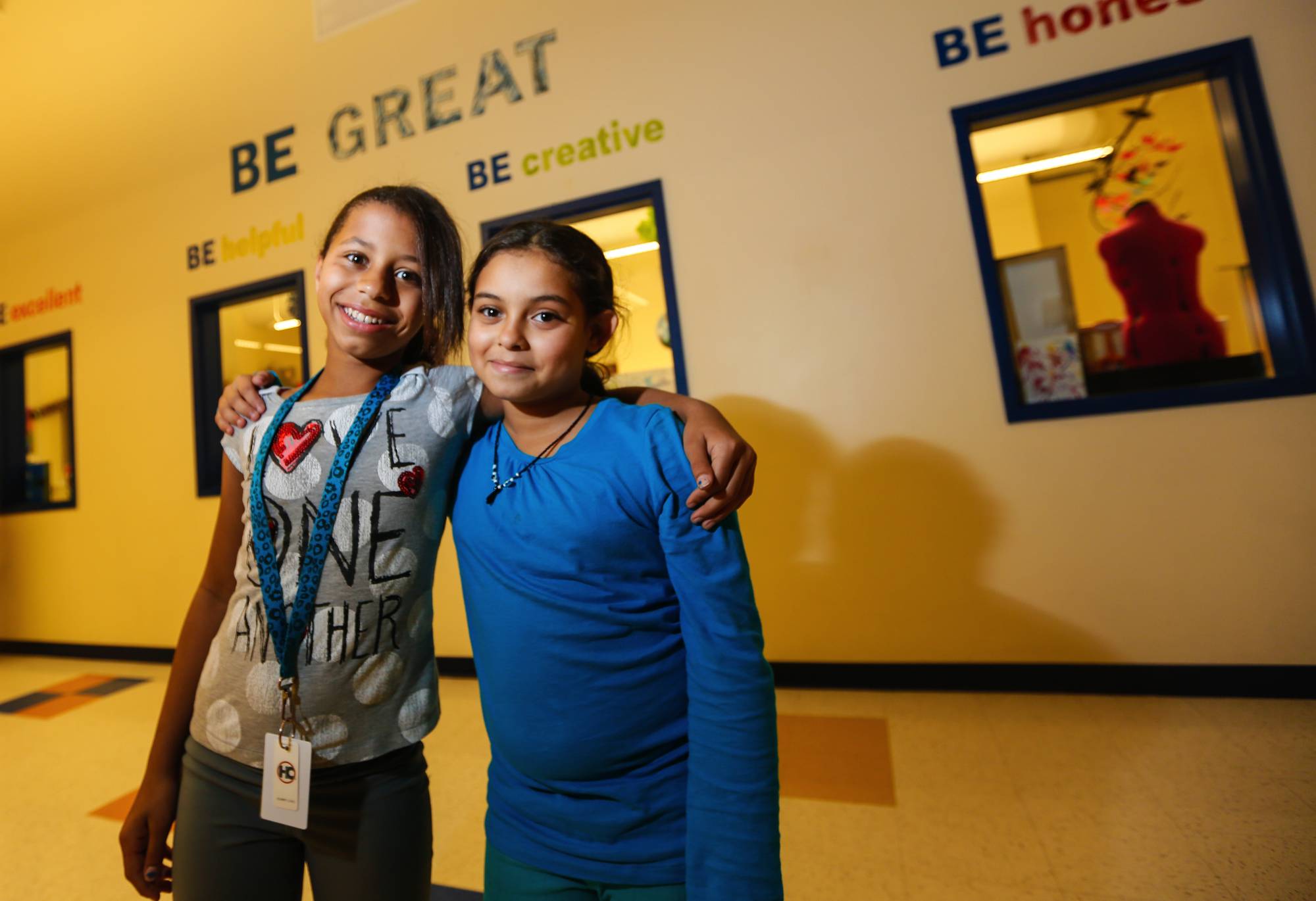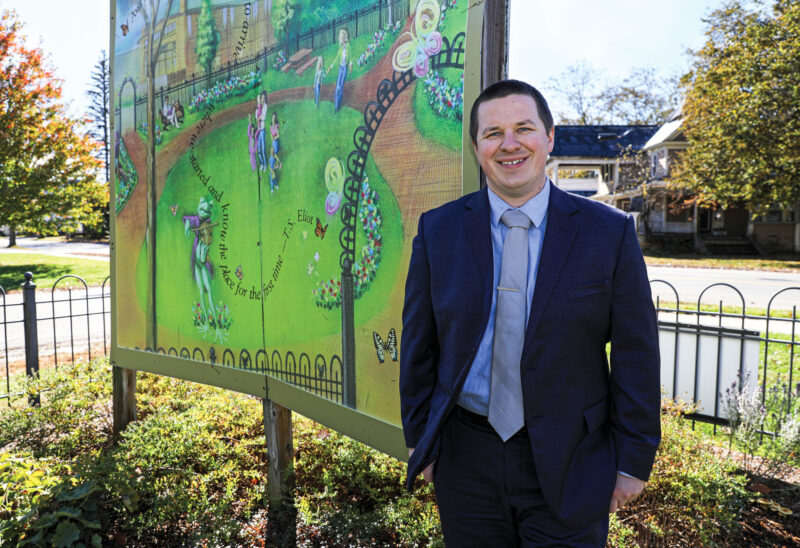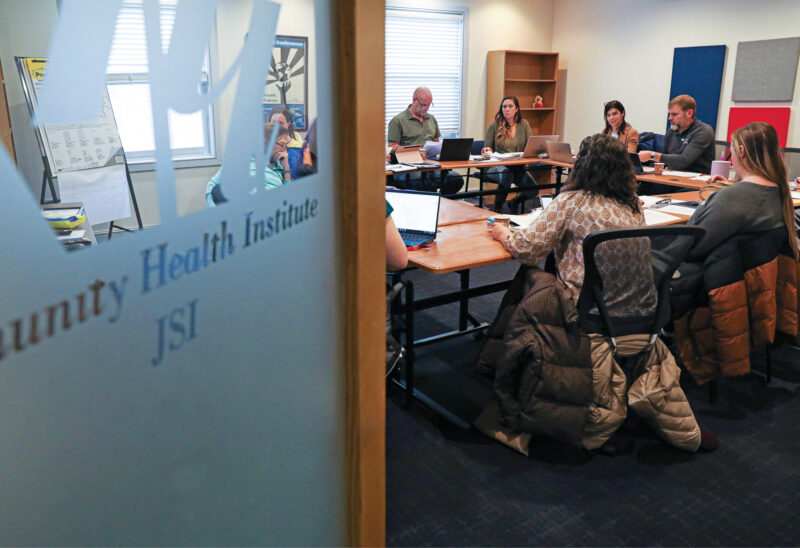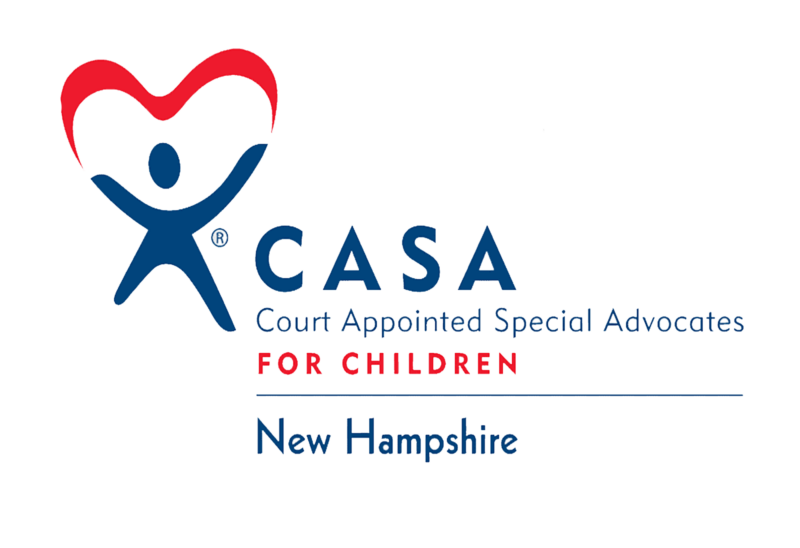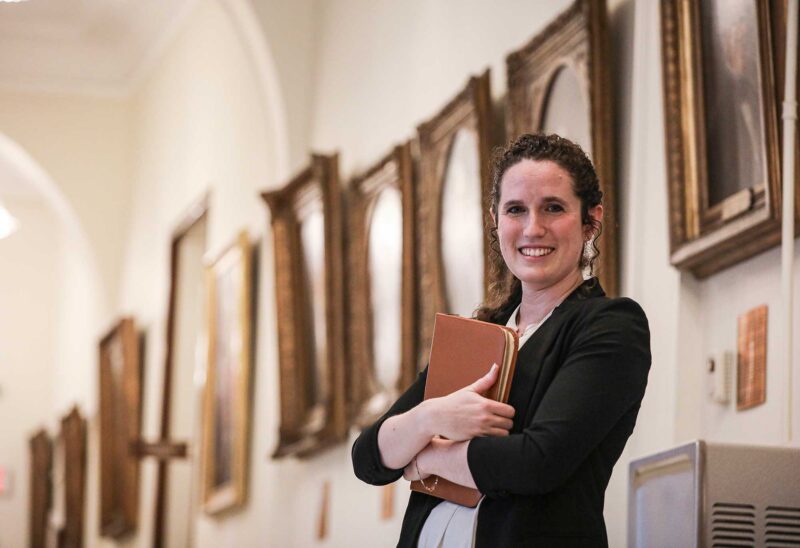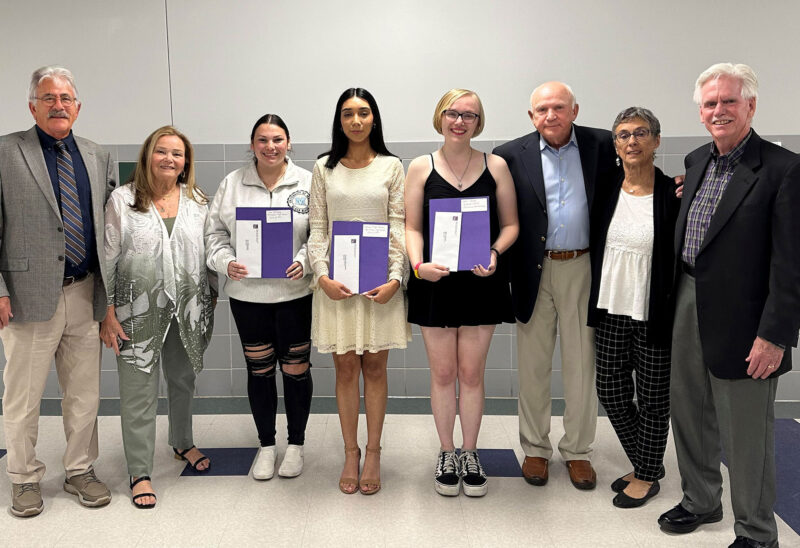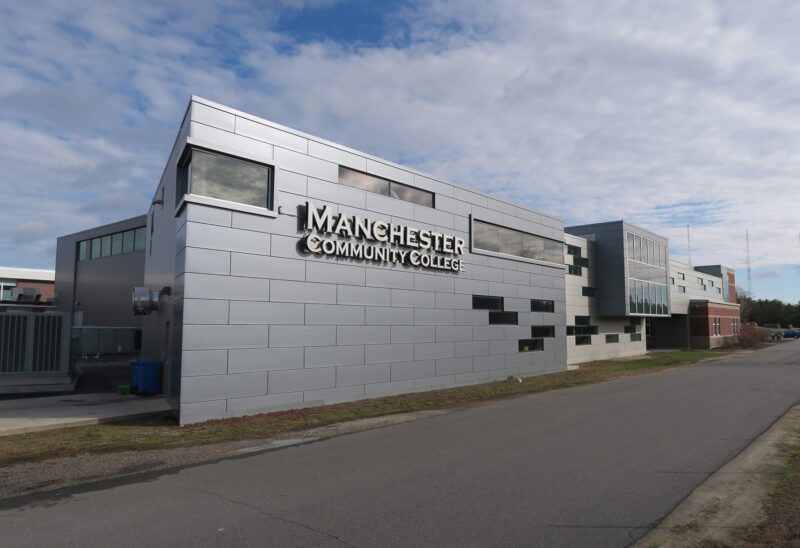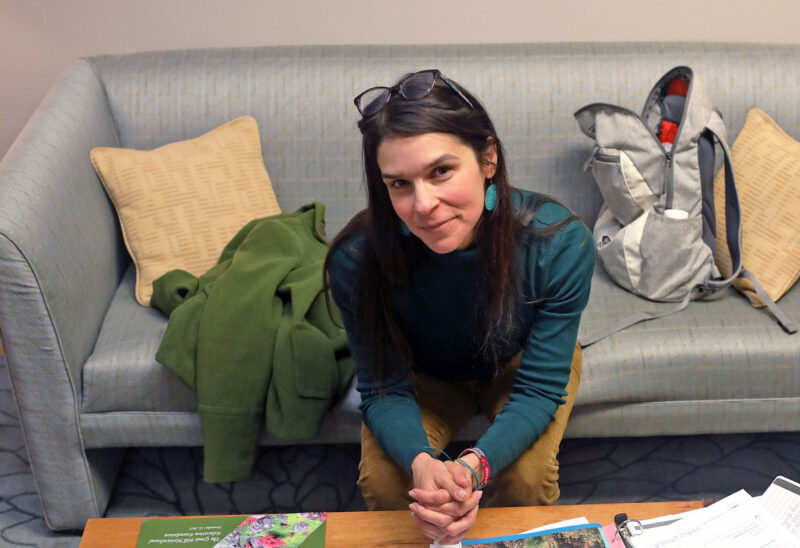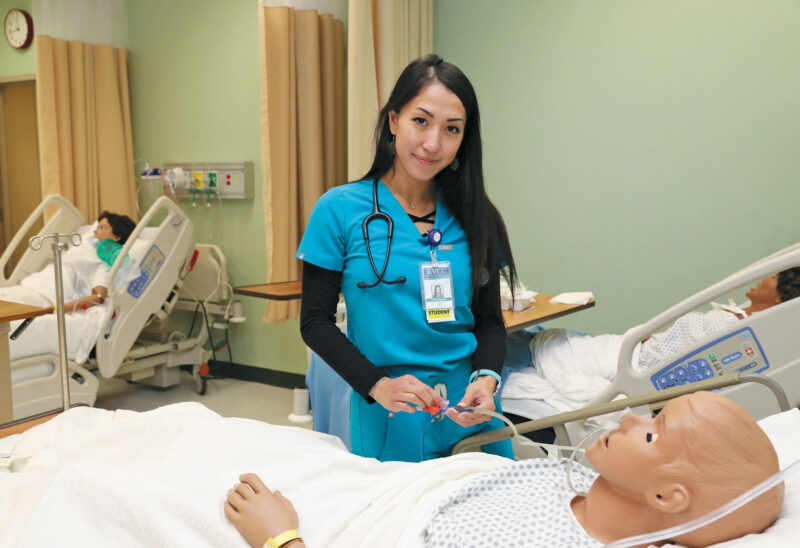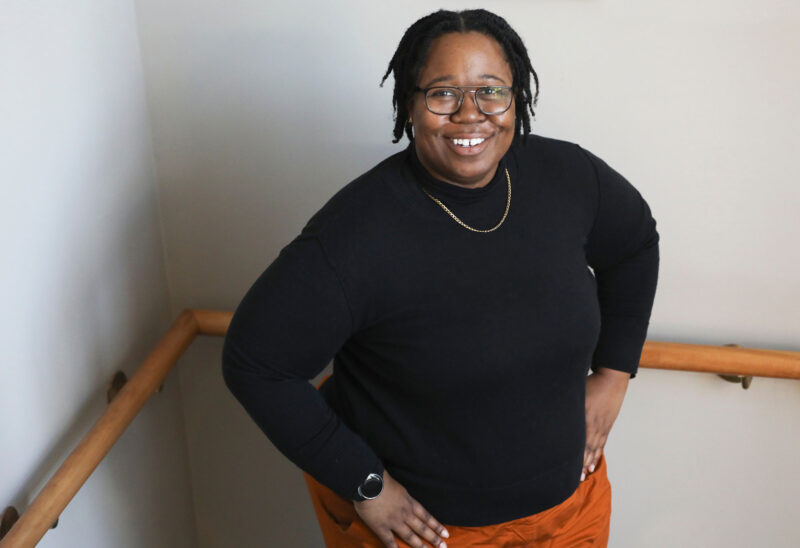Cassidy and Sarah grew up in the same New Hampshire mill town and went to the same public high school. Sarah grew up with cello lessons and field hockey and summer camps and Chinese language classes — and a belief in her own unlimited possibilities.
Cassidy did not. Her mother left an abusive marriage and raised four kids on the wages of a nursing assistant. Her father was in and out of jail. Cassidy’s grades started to drop in high school. Higher education and upward mobility were never real considerations.
Cassidy quit school and had her first child before she was old enough to vote. Sarah graduated from a prestigious liberal arts college and is planning to go to law school.
Cassidy and Sarah represent a stark reality for New Hampshire: Our kids face a growing “opportunity gap” that, for many, hinders their ability to reach their full potential — and threatens New Hampshire’s future prosperity.
The Foundation’s New Hampshire Tomorrow agenda is all about narrowing that gap.
Generous donors have made it possible for the Foundation to make a multiyear commitment, beginning with at least $10 million in 2015 and in 2016, to increase youth opportunity. The Foundation will work to multiply those funds with additional investments from local and national partners.
New Hampshire Tomorrow has one goal: to ensure that all of New Hampshire’s kids have the opportunity to thrive — from cradle to career.
The agenda includes strengthening New Hampshire’s system of early childhood education to make sure that all kids get a great start; supporting families and youth; preventing and treating drug and alcohol addiction among young people; and helping New Hampshire’s kids get the higher education and training they need to thrive.
“We’ve identified proven programs where our work can make a difference,” said Katie Merrow, Foundation vice president of community impact. “The science is clear on early childhood — 80 percent of brain development happens before children turn three. Families and kids need support — from parenting classes to youth mentoring. Drug and alcohol use seriously threatens our young people’s health and potential. And our kids need more help than ever getting the higher education and training they need to succeed.”
Each area of investment includes strategic partnerships with the public sector, nonprofits, education and business.
“Our state’s future prosperity will depend on how well we help our kids to thrive today.”- Foundation President Richard OberTweet This
Investment in New Hampshire’s future
All of New Hampshire stands to gain: Strong, thriving children grow into capable adults who can contribute to a prosperous and sustainable society.
“As a community, as a state, we have got to do something about this,” said Foundation President and CEO Richard Ober. “We have got to recognize that all New Hampshire kids are our kids, and that our state’s future prosperity will depend on how well we help our kids to thrive today. Inequality of opportunity, combined with our aging population and slow population growth, represents a real threat to our long-term social and economic well-being.”
“So this is not only a social obligation,” Ober said. “It is also an economic imperative.”
Effective action for the next generation is a longstanding Foundation priority: About 40 percent of Foundation dollars support people under the age of 24. Current demographic and social trends pointed to the need for a sharpened focus on increasing youth opportunity.
The opportunity gap is outlined by Robert Putnam in his book “Our Kids: The American Dream in Crisis.” Nationwide, kids from low-income families — like Cassidy’s — have less access to everything from quality early-childhood education to advanced placement courses in high school to sports and enrichment activities that provide mentoring and team-building skills. They fare worse academically, are less likely to go to college, less able to get good jobs, less able to contribute to the economic and social well-being of their communities. Nationwide, Putnam reports, family income now matters more than ability in college completion.
The Foundation also helped launch and is funding “Our Kids New Hampshire,” an effort to bring conversations about the opportunity gap into the public square — and to the presidential primary. And it is leading efforts to create a nationwide coalition of community foundations working on narrowing the opportunity gap.
Foundation donors Woolsey and Bea Conover of Holderness are supporting New Hampshire Tomorrow.
“I am glad to see that the Foundation is picking up on this,” Woolsey Conover said. “Because it is critically important to the future of our state, our region and our country.”
“The challenge,” Bea Conover added, “is to get enough people thinking about it and doing something about it. You can’t listen to the tales you hear daily in the media and not get upset. If you’re not getting upset about it, you’re not really thinking too much.”
Opportunity gap widening
The opportunity gap is widening in New Hampshire.
While New Hampshire rates second overall for child well-being, those ratings are based on averages. Thirteen percent of our kids are living in poverty — up from six percent in 2000. (Under federal guidelines, a family of four with an income of $24,250 is considered to be in poverty.)
In New Hampshire, the number of children living in poverty — 34,000 — is more than the combined populations of Portsmouth and Plymouth. And pockets of poverty are growing deeper. Twenty-nine percent of our kids are eligible for free and reduced-priced lunch, a reliable measure of poverty. In some New Hampshire cities, half of all kids qualify. Our kids struggle in other areas too: New Hampshire’s young people have among the highest rate of substance use in the country. And our students have the nation’s second-highest debt load.
Taking action
“If we do a good job tackling this problem, we’ve got a great future for New Hampshire,” said Steve Duprey, who co-chairs “Our Kids New Hampshire” with former Foundation President Lew Feldstein. “But if we don’t address it, it will be tougher for this state to be a great place to live and work and raise a family.”
Return on investment in the focus areas of New Hampshire Tomorrow is high — measured in quality of life and in numbers. A dollar invested in early childhood development nets an average $7 return in productivity and saved societal costs. Services to families and kids — from housing to mentoring — bring a range of returns in productivity and saved societal costs. A dollar invested in prevention of alcohol and drug use and treatment and recovery saves up to $12 in productivity and earnings, health care and other societal costs. A person with a bachelor’s degree is likely to earn nearly twice that of a person with a high school diploma. And associate degrees and certificates in certain fields significantly increase earnings.
All of our kids deserve our shared investment.
“Our kids are not just our biological kids, but the kids we are related to because we are living among them,” said Bishop Rob Hirschfeld of the Episcopal Church of New Hampshire, who serves on the Our Kids New Hampshire Advisory Committee. “I don’t think that New Hampshire wants to see kids fall off the cliff.”
New Hampshire has its share of challenges when it comes to narrowing the opportunity gap — and it also has some strengths.
“We’re small enough,” Duprey said, “that I think we can tackle and solve any problem in this state the old-fashioned New Hampshire way: you sit down and you talk it out and you find common ground on solutions.”
If the gap is to be narrowed, the Foundation’s New Hampshire Tomorrow work will be just part of a larger set of solutions and investments from the public and private sectors.
“Working together,” Ober said, “we can and we must make New Hampshire a place where all of our kids — the Cassidys and the Sarahs — have the opportunity to reach their full potential. Inaction on this issue is just not an option.”
Jennifer M. Silva, assistant professor of sociology at Bucknell University, contributed to this report.
This story originally appeared in our 2015 Fall/2016 Winter Purpose Newsletter.

